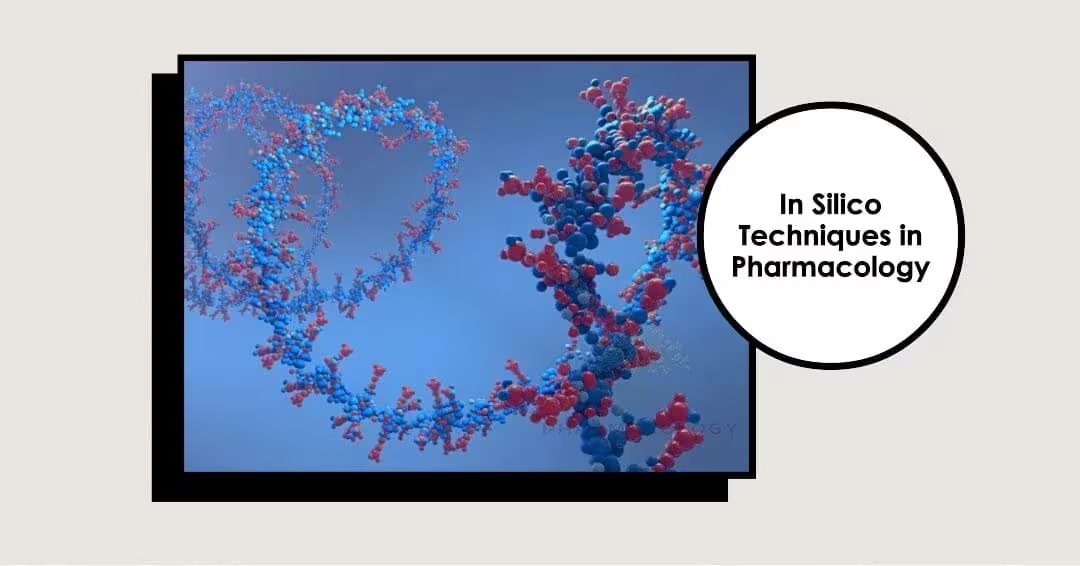In the realm of pharmacology, the last century has witnessed a significant evolution in scientific research. This evolution has been driven by meticulously designed studies and continuous technological advancements that have enabled the measurement and analysis of biological samples and subjects. As a result, our understanding of biological systems has expanded exponentially. The term ‘in silico’ refers to computational models that explore pharmacological hypotheses using various methods such as databases, data analysis tools, data mining, homology models, machine learning, pharmacophores, quantitative structure-activity relationships, and network analysis tools. Typically, in silico methods are used in conjunction with in vitro models.
The Journey from In Vivo and In Vitro to In Silico
Traditionally, in vivo and in vitro models have been the primary sources of data in pharmacological research. However, these methods come with their own set of limitations. In vivo models, for instance, pose risks to the study subjects or rely on animal models, the findings of which may not be applicable to humans. On the other hand, in vitro models fail to account for the complex interactions that occur in vivo, which could influence the hypothesis under investigation. In light of these limitations, in silico models have gained increasing popularity in recent years.
The Rising Popularity of In Silico Models
In silico models have been successful in achieving numerous advancements in various pharmacological areas. These include clarifying absorption, distribution, metabolism, excretion, and toxicity properties, discovering and optimizing novel molecules, and physicochemical characterization. The use of such models is growing in popularity, and they have already made significant contributions to the medical sector.
For instance, in silico methods were used in a 2009 study that predicted how certain already-approved drugs could be repurposed to treat numerous drug-resistant strains of tuberculosis. Using conventional methods, such an investigation would have required considerably more time and resources.
Commonly Used In Silico Techniques
There are several in silico techniques currently in use. Here, we present some of the most widely used methods.
Bacterial Sequencing Techniques
Bacterial sequencing techniques represent a group of in silico methods used to identify bacteria. These techniques sequence bacterial DNA and RNA. Polymerase chain reaction (PCR) is the most commonly used technique, which works by duplicating a single or several pieces of DNA, creating millions of copies of the sequence. As a result, it is a highly sensitive method of detecting bacteria and viruses that underlie serious diseases.
Molecular Modeling
Molecular modelling is another popular in silico method capable of demonstrating how therapeutic molecules interact with the nuclear receptors of cells. One notable molecular modelling study revealed that a particular metabolite of vitamin D, 25-D, along with a substance generated by bacteria, Capnine, is able to turn off the vitamin D receptor.
Whole-Cell Simulations
Scientists have also developed a computer model that allows for whole-cell simulations. These studies replicate the interior of target cells to demonstrate how molecules interact with them. Whole-cell simulation studies provide information at the cellular level and can accurately simulate the behavior of living cells.
While there are other in silico techniques, these are perhaps the most common. These techniques will likely continue to be used in pharmacology to produce significant data capable of advancing our knowledge of biology.
In Silico: The Next Evolution of the Healthcare Sector
In silico studies represent the next evolution of the healthcare sector. They are a relatively new method of investigating hypotheses, and the number of research projects that rely on these methods is rapidly growing. Often, they are used to explore how novel therapeutics interact with certain molecules in the body, biological tissues, and pathogens. These studies have already produced findings that have made waves in Pharmacology.
The Future of In Silico in Pharmacology
The term ‘in silico’ is relatively new in the scientific community. It was first used in public in 1989 during the “Cellular Automata: Theory and Applications” workshop held in New Mexico. Since then, the use of in silico techniques in pharmacology has grown rapidly.
In silico studies are now being used to explore how novel therapeutics interact with certain molecules in the body, biological tissues, and pathogens. These studies have already produced findings that have significantly impacted the medical sector. For example, in silico methods were used in a study that predicted how certain already-approved drugs could be repurposed to treat numerous drug-resistant strains of tuberculosis.
Conclusion
In silico techniques in pharmacology have opened up new avenues for research and discovery. They offer a cost-effective and efficient alternative to traditional in vivo and in vitro models, enabling scientists to conduct complex simulations and analyses that were previously impossible. As technology continues to advance, the role of in silico techniques in pharmacology is set to become even more significant, paving the way for groundbreaking discoveries and advancements in the field.
Disclaimer: This article is for informational purposes only and should not be taken as medical advice. Always consult with a healthcare professional before making any decisions related to medication or treatment.
📚 AI Pharma Quiz Generator
🎉 Quiz Results
Medical Disclaimer
The medical information on this post is for general educational purposes only and is provided by Pharmacology Mentor. While we strive to keep content current and accurate, Pharmacology Mentor makes no representations or warranties, express or implied, regarding the completeness, accuracy, reliability, suitability, or availability of the post, the website, or any information, products, services, or related graphics for any purpose. This content is not a substitute for professional medical advice, diagnosis, or treatment; always seek the advice of your physician or other qualified health provider with any questions you may have regarding a medical condition and never disregard or delay seeking professional advice because of something you have read here. Reliance on any information provided is solely at your own risk.

